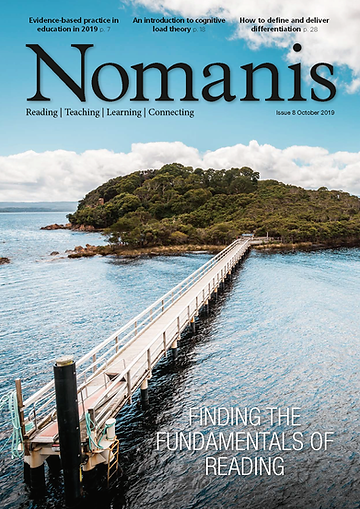
Issue 8, October 2019
In this edition, Pamela Snow examines what evidence-based practice in education means in 2019, while Jennifer Buckingham reports on how evidence-based instruction is being taught in initial teacher education. Our Q&As with John Sweller and Gene V. Glass explore cognitive load theory and metaanalyses respectively, Jodie Watson defines differentiation, Mark Carter discusses how teachers and families can assess pseudoscientific interventions, and Tom Chivers tackles the ubiquitous ‘growth mindset’.
You can view a digital edition of Nomanis here, download a PDF of the whole edition here (2mb), or read the individual articles below:
-
What does evidence-based practice mean in education in 2019?: Pamela Snow
-
Graduate teachers are short-changed on evidence-based reading instruction: Jennifer Buckingham
-
The myth of the 'growth mindset': Tom Chivers
-
Finding the fundamentals of reading: Dr Jon Quach, Professor Sharon Goldfeld, Professor Janet Clinton, and Dr Tanya Serry
-
An introduction to cognitive load theory: Dominique Russell and John Sweller
-
The promise of meta-analysis for our schools: a Q&A with Gene V. Glass
-
Enhancing literacy learning outcomes for beginning readers – research results and teaching strategies: James W. Chapman, Alison W. Arrow, Christine Braid, Keith T. Greaney and William E. Tunmer
-
Assisting teachers and families in decision-making regarding questionable and pseudoscientific interventions: Mark Carter
-
Defining differentiation: Jodie Watson
-
Knowledge translation in early years reading instruction – a tale of two paradigms: Pamela Snow
-
The purpose of assessment in schools: MultiLit Research Unit Nomanis Notes – Do memory training programs improve the learning of academic skills?: Kerry Hempenstall
Please share this issue with your friends and colleagues, and we would welcome your feedback.